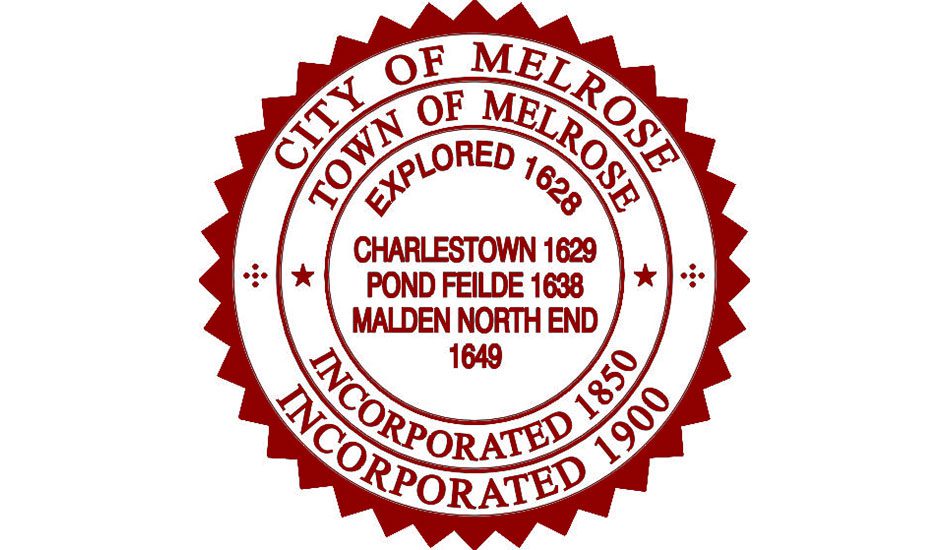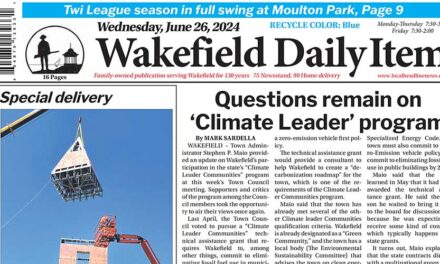
MELROSE — Voters rejected a plan Tuesday to raise taxes so $7.7 million could be added to budgets each year to help the city and its schools provide adequate services.
The operational override of tax-limiting Proposition 2 1/2 failed by a roughly 55 percent to 45 percent margin, with 5,150 voters rejecting it and 4,280 supporting it. The override request came five years after a successful one passed muster in 2019. It also followed hot on the heels of the November approval of a Proposition 2 1/2 debt exclusion to raise taxes for a limited number of years so the city’s public safety facilities can be improved.
Mayor Jen Grigoraitis sought the override vote because costs keep going up, jeopardizing what the city and its schools can offer residents and their kids.
“Although this decision is not the outcome we hoped for, Melrose will do its best to continue to make do with the resources we have—meaning we will get by with fewer educators and other City employees, as well as reduced services from our DPW, Council on Aging and other important City departments. As always, we will continue to seek out cost savings and novel revenue sources to fund the basic needs of our community.”
The override would have added $4.2 million to the schools each year and $3.5 million to public safety, capital project and other areas.
Opponents of the override argued, in part, that enough is enough. Their taxes are going up every year and some wondered if the money is being managed well by the city. Municipal government and the city’s schools need to learn to live with their means, other opponents said.
Supporters say override requests will be necessary in the years to come as costs to run the city keep going up.
On Thursday, after the deadline of the print version of the Weekly News, the City Council planned to meet to deal with the city budget for the year beginning July 1.
Earlier this year, the mayor presented a $104.1 million spending plan for Fiscal Year 2025. She said that while it is a balanced budget, “it is not a budget that we should collectively feel all that good about. Because it is not sufficient to meet the needs of our city and our schools. In short, it is not the budget that the city of Melrose deserves.”
Grigoraitis added, that “there is also a lot that should concern us in this budget. In many ways, if you ask me to honestly answer, what are we doing in this FY25 budget? We are surviving. We are living within our means, and we are having to cut and reduce services to do so. This is not a management problem or a partisan problem. This is a math problem. When costs go up by 9 percent (health insurance), 5 percent (out-of- district school placement), 20 percent (utilities) and city revenues go up by 2.5 percent, you cannot make that math work and you certainly cannot sustain it without some very significant impacts on our community.
“And next year will be worse. All our costs will continue to rise, and we will continue to be capped by state law at a 2.5 percent increase in revenue, and we have taken some measures, such as budgeting 85 percent of our local receipts, to close this year’s budget that will further impact next year’s budget.
“At this moment, very significant gaps remain, for both our schools and our city departments, and I want us all to understand those together.
“Let’s start with the schools, which represent over 60 percent of the total budget. At the end of April, the School Committee unanimously passed a very tough budget, which will require laying off up to 13 educator positions and leaving unfilled four vacancies created by mid-year retirements or resignations. As of today, with the proposed FY25 school budget, we will have 17 fewer pairs of boots on the ground in our schools in September than we do right now.
“To meet our most urgent needs at the middle school, approximately 13 positions will be transferred from other Melrose schools into MVMMS. This will lead to higher class sizes—which could go up to as many as 28 students per teacher—especially at the Winthrop, Lincoln and Hoover elementary schools and at Melrose High School.
“An additional 26 needed positions in our school district will not be added, including:
• Classroom teachers at Melrose High School;
• Special education teachers and paraprofessionals across the district;
• Kindergarten paraprofessionals;
• Additional substitutes;
• An educator to support students who are learning English;
“In sum, this means that in staffing alone, Melrose Public Schools will be facing the next school year with over 40 fewer teachers and staff than they have identified they need. And that’s not even beginning to address the impact of other cuts, like the elimination of capital funding to repair and replace student Chromebooks and School Department technology.
The needs going unfunded will have a profound impact on the education of our students. We have done everything possible to ensure that the school budget does as much as it can within our limited means, but it should be clear to all of us that the cuts, transfers and unfilled positions will not produce the best possible educational experiences for our kids.
“On the city side, we prioritized maintaining existing staff and services, which was challenging to do after addressing all our increased costs. Some items of note in the city budget:
“We will not fill key positions that are either currently funded off budget or unfilled, including the sustainability manager, economic development director, and social services Coordinator. These are external facing positions that worked with our residents and our local business, arts and non- profit communities, that bring in grant money, and play a critical role in moving forward our work on climate resiliency and growth in our business community.
“We will eliminate the IT capital budget. This means that all IT capital needs, whether it is replacing Chromebooks or improving Wi-Fi or increasing cybersecurity for the resident data we hold on our systems, will need to be funded through one time revenue.
“The Rec Department will be exclusively fee-based with no city operating support. This means that Rec programming will be completely reliant on user fees paid by residents.
“The Health Department, Veterans Services Department and Council on Aging all will see budget decreases.
We will eliminate the community events budget and shift the Messina Fund for arts and culture to one time additional revenue (Free Cash).
We will reduce the overtime budgets for police, fire, and DPW by 5 percent, and freeze the compensation of all non-union staff (just over 60 positions) at FY24 levels.
In other words, we are cutting in the only places we can, and they are the places that often provide direct engagement with residents.
“In my assessment in office so far, taking an in-depth look at all of this, and seeing the price and cost pressures we are all facing across the board: it is clear to me that the city departments are just a few years behind the very hard decisions the schools are currently facing.
“For now, we are going to regrettably be cutting the places we can: human services, community events, as well as covering some positions with fees.
“On the city-side, department increases are being driven by mandated costs: Utilities, transportation, contractually obligated salaries and benefits, public safety requirements, debt and pension obligations, and costs that are not set by the city (like out-of-district placements, transportation, Essex Agricultural, Voke, and Charter School tuitions; Pine Banks capital needs).
“These are not good choices. They are choices we are making so that we don’t have to lay off more staff or cut mandated services. And I know this means that we are cutting some of the very things that people love about Melrose.”





